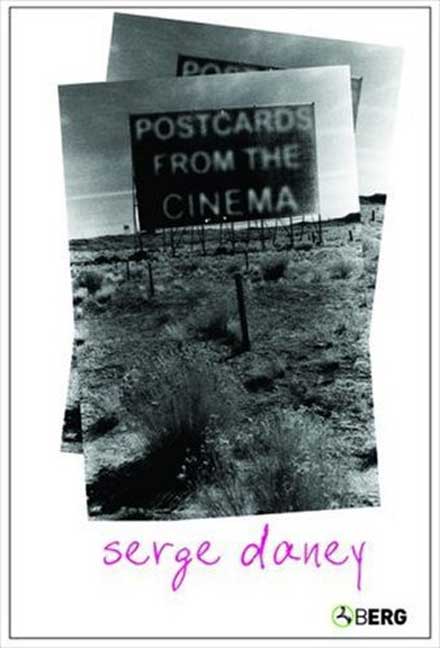The following is the 16th column I’ve written for Cahiers du Cinéma España, a bimonthly feature that I write for this magazine called “En movimiento,” translated into Spanish by Carlos Reviriego, the editor-in-chief; it appeared in their March 2010 issue (no. 32). — J.R.
The bound galleys of a new book by Jerry Roberts (a name unfamiliar to me), 480 pages long, has just arrived in the mail, and its title already made me uneasy before I even looked inside: The Complete History of American Film Criticism. Santa Monica Press announces a publication date of April 1, 2010. Even though this appears to be a serious and careful work within its own limits, there are reasons at the outset for both defining and challenging these limits.
At least three separate problems are raised by three of the seven words in the title — “the,” “complete,” and “American”:
(1) Why “the” and not “a”? To suggest something definitive at the outset is already to fib — in the same way that I believe that Nick James, the editor of Sight and Sound, fibbed, presumably without realizing it, in the Spring 2009 issue of Film Quarterly when he wrote, “The wonderful golden run of great international cinema in the 1990s that brought us the best of Edward Yang, Wong Kar-wai, Takeshi Kitano, and Abbas Kiarostami, among many others, petered out several years ago.” Anyone who makes such a claim — even though, I’m sorry to say, this is a completely commonplace statement for a film critic to make — assumes in advance either that he or she has already seen every film ever made in the 1990s and is qualified at the present moment to evaluate them all, or that one can depend totally on the judgments (both current and lasting) made by programmers, distributors, and other writers.
(2) Why “complete”? (See above.) Obviously Jerry Roberts hasn’t read every scrap of American film criticism ever written, much less ever published, so he’s obviously depending to a large degree on the testimony of others. Far more crucially, he has decided in advance not even to consider any academic film criticism. Although this book has a very reliable 26-page index, one searches it in vain for the names Dudley Andrew, Janet Bergstrom, David Bordwell, Tom Gunning, James Naremore, or Gilberto Perez, and criticism of experimental cinema is also excluded. (David James and Ken Kelman go unmentioned, and Jonas Mekas and P. Adams Sitney get only fleeting acknowledgments.)
(3) And finally, why even “American”? To consider “American film criticism” in almost complete isolation from other English-language criticism, journalistic, academic, and otherwise — Noël Burch (born in the U.S.), Raymond Durgnat, Tom Milne, Peter Wollen, the great Robin Wood (who died in Toronto at the age of 78 the same week that this book arrived), and Adrian Martin all can’t be found in the index, either — as well as criticism in all other languages is essentially to ratify American isolationism at its most solipsistic and self-deluded. (I have lodged the same complaint against Gerald Peary’s otherwise defensible if rather breezy recent documentary, For the Love of Movies: The Story of American Film Criticism.) The longer of the book’s two fleeting references to André Bazin brings him up only because Andrew Sarris made the (highly dubious) assertion that Otis Ferguson was the American critic of the past who resembled Bazin the most — but without explaining why this might have been so in any detail. (Serge Daney gets no mention, but this, at least, is more understandable: despite an American web site devoted to Daney’s writing in English and a 2007 translation of Persévérance [as Postcards from the Cinema], he’s had scant influence in U.S. criticism, unlike Bazin.)
Because American isolationism already involves such systematic exclusions, it seems that perpetuating them is to some extent inevitable, and one clearly can’t expect a simple historian of American film criticism to reverse such a tide. But this is nevertheless a sad and troubling state of affairs, even for for what appears to be a creditable work.


